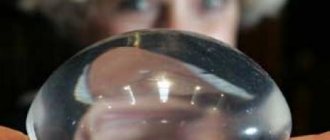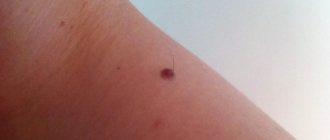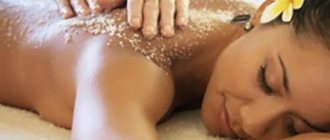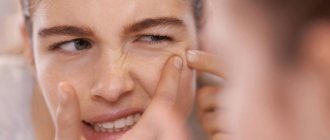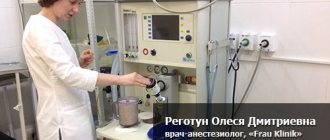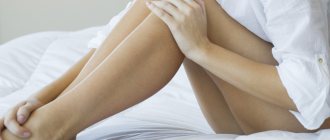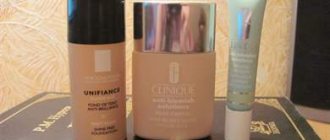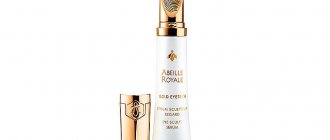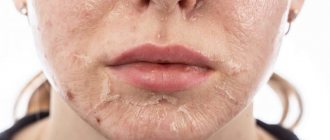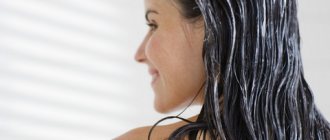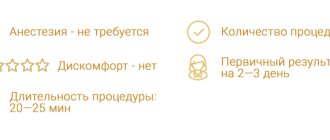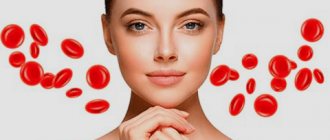Tests for rhinoplasty
When and what tests to take for rhinoplasty, what is the list of required types of examination? Most pre-rhinoplasty examinations should be performed no earlier than 14 days before surgery. A standard set of tests and instrumental examinations is listed below.
No earlier than 2 weeks before rhinoplasty, various blood tests are taken:
What other tests need to be taken before rhinoplasty? In addition to various blood tests, a general urine test is also required, which must be taken no earlier than two weeks before the upcoming operation. You should undergo an ECG no earlier than a month before the upcoming operation. If abnormalities are detected, consultation with a cardiologist is recommended.
Chest X-ray or fluorography is valid for one year. It is also necessary to provide a CT scan of the paranasal sinuses, performed in 2 projections. If any deviations are present, it is recommended to consult an ENT specialist. This type of instrumental examination should be completed no earlier than one month before the upcoming operation.
Before rhinoplasty, it is necessary to do an ultrasound of the legs; the results of this examination are valid for one month. If deviations are present, a consultation with a phlebologist is required. It is better to consult a therapist last, when there is already a full set of tests, on the basis of which the doctor is able to give an opinion about the general condition of the patient and the admissibility of surgery. You can also check with your plastic surgeon preparing you for the operation what tests are needed for rhinoplasty, because the set of mandatory examinations may be changed in cases where the operation is performed in a specific way.
It should be remembered that even after successfully passing all the tests, you may encounter contraindications for rhinoplasty. Also, rhinoplasty is characterized by contraindications after surgery, which must be taken into account to achieve the best effect from the intervention.
The main thing in the work of a plastic surgeon is the safety of his patient. Any operation is associated with risks, even those aimed at purely aesthetic changes in the body. To eliminate the risks associated with the operation, the patient is required to undergo a detailed examination. This is necessary to exclude contraindications to nose correction. Therefore, we will consider not only tests before rhinoplasty
, but also the reasons, but to whom they are handed over.
Features of preparation for surgery
The process of preparing for rhinoplasty includes several stages:
- The first consultation with a plastic surgeon, during which he examines the patient, determines the scope of the upcoming surgical intervention and makes prescriptions.
- Blood and urine tests are submitted to the laboratory.
- The patient undergoes a hardware examination.
- Consultations are held with highly specialized specialists identified by the surgeon (therapist, anesthesiologist, cardiologist, neurologist, dentist, etc.).
- A second consultation with a plastic surgeon takes place before rhinoplasty, during which the doctor takes photographs of the patient’s nose and marks.
- several weeks before surgery, it is necessary to completely stop taking medications that thin the blood (this requirement must be fulfilled unquestioningly in order to eliminate the risk of bleeding during surgery);
- stop taking hormonal medications and other medications, especially those that affect blood pressure (if the patient has chronic diseases that require regular medications, he should consult a doctor);
- a month before surgery, you must quit smoking and stop drinking alcohol (nicotine often leads to the formation of blood clots in the postoperative period);
- stop taking vitamin-mineral complexes for a while;
- stop visiting solariums, and also minimize the time spent under the sun, etc.
6-8 hours before plastic surgery, the patient must:
- stop eating solid food (intestinal cleansing is prescribed, which can be done through an enema or a special drug);
- It is prohibited to use cosmetics, including lotions and creams;
- Before visiting the operating room, the patient must take a shower and put on sterile clothing (usually issued in medical institutions).
After surgery, the patient is taken on a gurney to his room. Within a few hours he will recover from the anesthesia (it is not recommended to drink water, as a gag reflex may occur).
If the patient is thirsty, he can moisten his lips with a damp cotton pad or gauze pad.
The patient will have to spend the night within the walls of a medical institution, and the next day (if there are no complications) he will be discharged home to undergo rehabilitation.
During the entire recovery period, the patient must follow the instructions of his doctor, take medications, undergo physical therapy procedures, and attend regular checkups.
Contraindications for rhinoplasty
Before turning to the list of “measures,” we decided to identify the main contraindications, due to which correction becomes impossible either completely or for the duration of treatment. Contraindications include:
- Oncological diseases.
- Diabetes.
- Infectious diseases of the ENT organs.
- Inflammatory diseases of the general spectrum (from intestinal infections to thrush).
- Viral and bacterial diseases that cannot be treated - hepatitis, HIV, and so on.
- Reduced blood clotting.
- Manifestations of inflammation, rashes on the skin of the nose and nasolabial triangle.
- Damage to internal organs.
- Diseases of the heart and blood vessels.
- Lung diseases.
- Chronic diseases that can complicate the operation.
- Mental illnesses.
RHINOPLASTY WITHOUT SURGERY
Plastic surgeon, Pavlov E.A.:
Hello, my name is Pavlov Evgeniy Anatolyevich, and I am a leading plastic surgeon at a famous Moscow clinic.
My medical experience is more than 15 years. Every year I perform hundreds of operations for which people are willing to pay HUGE money.
.
Unfortunately, many people do not even suspect that in 90% of cases surgery is not required! Modern medicine has long allowed us to correct most appearance flaws without the help of plastic surgery
.
Plastic surgery carefully hides many non-surgical methods of appearance correction.
I talked about one of them, check out this method
We emphasized this section because it is an extremely important list not only for health, but also for your life in general. You need to know for sure that everything is in order with your health so that the operation takes place without complications. That is why you should undergo a series of tests, undergo some procedures and visit specialized specialists.
Tests before rhinoplasty
First of all, we will look at what tests are taken before rhinoplasty, which must be done without fail. It is worth noting that the list may vary depending on a number of factors - the type of anesthesia, the wishes of a particular surgeon, and so on. Tests before rhinoplasty include:
- CBC (general blood test).
- Blood test for biochemistry (that is, blood composition - protein, creatinine, urea, and so on).
- Prothrombin analysis.
- Anti HCV and Hbc antigen.
- For HIV and RW.
- Rh factor and blood group.
- OAM (general urinalysis).
- X-ray or computed tomography of the sinuses.
- ECG followed by interpretation.
It is imperative to take tests on an empty stomach. The only thing that is acceptable is a few sips of water. The data obtained is valid for ten days, and therefore such an examination must be done approximately in this time range before the operation.
What mandatory tests should be taken before surgery?
During the consultation, the doctor must give a list of tests that the patient must undergo before surgery.
What tests need to be taken for rhinoplasty:
- Biochemical and clinical blood test. Such tests determine the levels of protein and glucose in the human body.
- General urine analysis.
- Test to determine blood clotting.
- Analysis for Rh factor.
- Test for STDs.
- Fluorography to determine the condition of the bronchi and lungs (mandatory for any medical interventions).
- The nomogram of the nasal bones and maxillary sinuses makes it possible to find out the condition of the cartilage and bone tissues.
Visiting doctors
The patient may also be required to visit a number of specialists. We would recommend that you consult your dentist and ENT doctor for advice on inflammatory diseases. Some clinics may not devote enough time to this issue, but such a full examination will guarantee that your health will not suffer irreparable damage.
The plastic surgeon must also perform nose modeling before rhinoplasty. This will allow you to see the future result. If you have previously done (a special substance that is injected under the skin in the nose area), then be sure to report this. The drug may not be completely eliminated from the body, and therefore any calculations and modeling due to the substance will be invalid. The patient himself is then to blame for the defects acquired after such correction.
Our readers write
Topic: Fixed my nose
From: Ekaterina S. (ekary***)
To: Site Administration
Hello! My name is Ekaterina S., I want to express my gratitude to you and your site.
Finally, I was able to change the shape of my nose. Now I am very happy with my face and no longer have complexes.
And here is my story
From the age of 15, I began to notice that my nose was not what I would like, there was not a large hump and wide wings. By the age of 30, my nose had grown even more and had become quite a “potato”, I was terribly complex about this and even wanted to have surgery, but the prices for this procedure are simply astronomical.
Everything changed when a friend gave me one to read. You can’t imagine how grateful I am to her for this. This article literally gave me a second life. After just a few months, my nose became almost perfect: the wings noticeably narrowed, the hump smoothed out, and the tip even rose slightly.
Now I don’t have any complexes about my appearance. And I’m not even shy about meeting new men, you know))
The result obtained after the operation will largely depend on how completely and openly you provide medical information about yourself. Mention all types of allergies and additional medical conditions that may prevent you from taking medications during or after surgery. You should also mention the medications that you are taking or stopped taking a month before the operation. Drugs such as coagulants can reduce blood clotting. The results will be catastrophic - significant blood loss, severe hematomas, and in especially severe cases - death. Ten days before surgery, some medications should not be taken. An example would be aspirin, medications with a high iron content, and even some vitamins and dietary supplements. Before the operation, a consultation with an anesthesiologist is carried out regarding pain relief. Some operations require local anesthesia, while some procedures require general anesthesia. Therefore, this issue needs to be clarified and, probably, allergy tests for substances should be carried out.
The last point in preparation for surgery is diet, avoiding alcohol (which affects the blood and internal organs significantly), energy drinks and other junk food that you consume. Many people wonder how many days not to smoke before rhinoplasty. Let us answer right away: ideally, it is better not to smoke at all, but if you have this bad habit, then it is better to give it up a month before surgery. After surgery, you should also not smoke, at least during the first stage of rehabilitation.
If you have one of the contraindications, the doctor will decide whether to perform surgery if there is an increased risk of complications. Your general practitioner must also approve the surgery. We, in turn, can only advise a reasonable attitude towards your health and life.
It is worth noting
In some cases, additional tests are also prescribed, which are recommended for the patient to undergo before surgery. This happens when the doctor doubts the normal functioning of individual organs.
- If there are disorders in the endocrine system, it is necessary to take a blood test to determine the level of certain hormones.
- If there are problems with the gastrointestinal tract, an ultrasound examination is performed.
- If there is a threat of postoperative complications, the patient may be sent for consultation to a dentist.
- Patients who have certain heart problems should undergo not only a cardiogram, but also an echocardiogram.
- In case of nervous system disorders, it is necessary to refer to a neurologist or psychiatrist.
- If a tumor is suspected, it is necessary to undergo a computed tomography scan to determine the type of tumor.
- If there are problems with the blood vessels of the brain, the patient is sent for an EEG.
Many are sure that the body and appearance are constantly in need of perfection. If nature has failed, then you can try to correct the deficiency with the help of plastic surgery.
The most popular operation lately is rhinoplasty, which allows you to get rid of imperfections in the nose by correcting it the way you want. This is an effective method of changing your appearance. The face immediately transforms, looks different, and sometimes breathing problems disappear. Preparation for rhinoplasty is an important stage.
You should begin preparing for rhinoplasty with special attention. The first preparations take place a month before the scheduled operation, then 2 weeks, a week and immediately before the surgical intervention itself.
A successful outcome depends on how seriously a person takes preparation and how he behaves during the recovery period.
After the examination
If the doctor has given his consent to perform the operation, then you need to be prepared for the following:
- Hospitalization begins at approximately 10 am.
- The operation is performed on an empty stomach. Eating and all liquids should be stopped approximately 8 hours before surgery.
- In any case, you will have complications such as swelling in and around the surgical area, hematoma, and pain.
- You will have to take antibiotics and other medications after the operation.
- You will need to follow your doctor's instructions exactly after surgery, even if you feel awkward and uncomfortable (for example, not everyone likes to sleep semi-sitting on their back).
We will also stipulate that the operation may be postponed for some other reasons. There are also restrictions that must be observed. Among them:
- Four days before, four days after and during menstruation, the operation is not performed.
- Surgery is not performed when a person is sick with acute respiratory infections or acute respiratory viral infections.
- You should not use cosmetics or nail polish before surgery. Remains of makeup and varnish must be removed. The same applies to creams. Their use is stopped 10 hours before correction. On the eve of the operation, carry out the necessary hygiene procedures: taking a bath, showering, washing your hair.
- After the operation, the patient cannot drive. Therefore, the person undergoing surgery will need to be accompanied.
This is all. The rest of the information regarding nose rhinoplasty should be provided to you by your doctor. Please note that if the clinic where you plan to correct the shape or length of your nose does not conduct a detailed examination at least on the above points, then it is better to refuse the services of such a hospital. The risk of complications and even injuries in the hands of such irresponsible people increases many times over.
